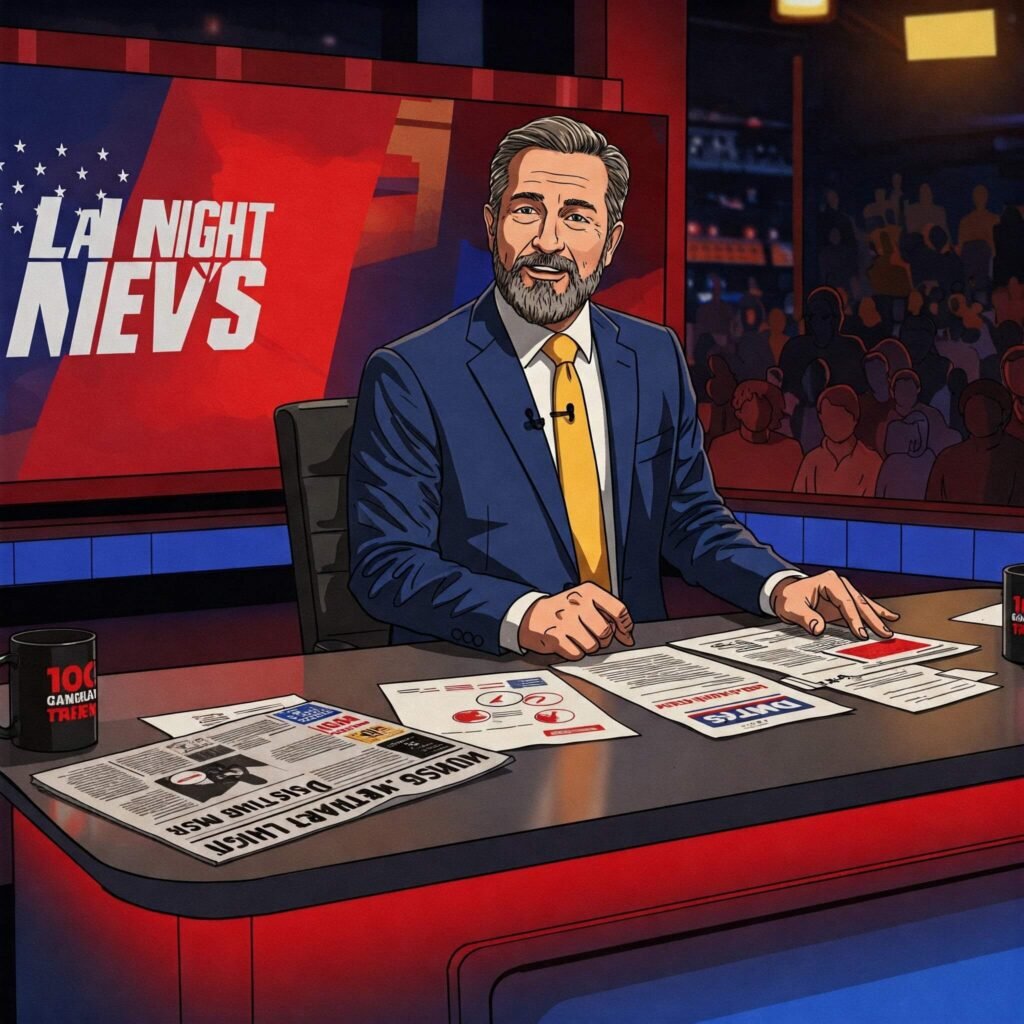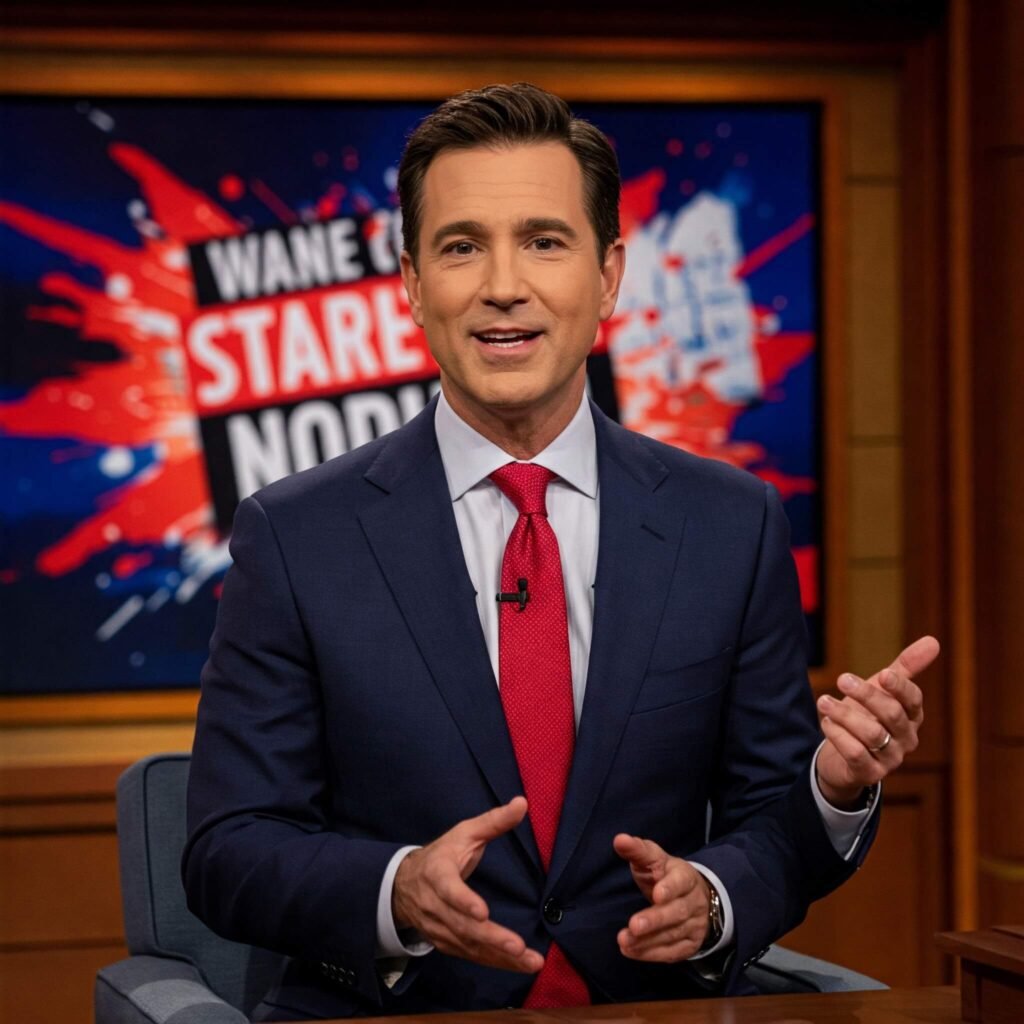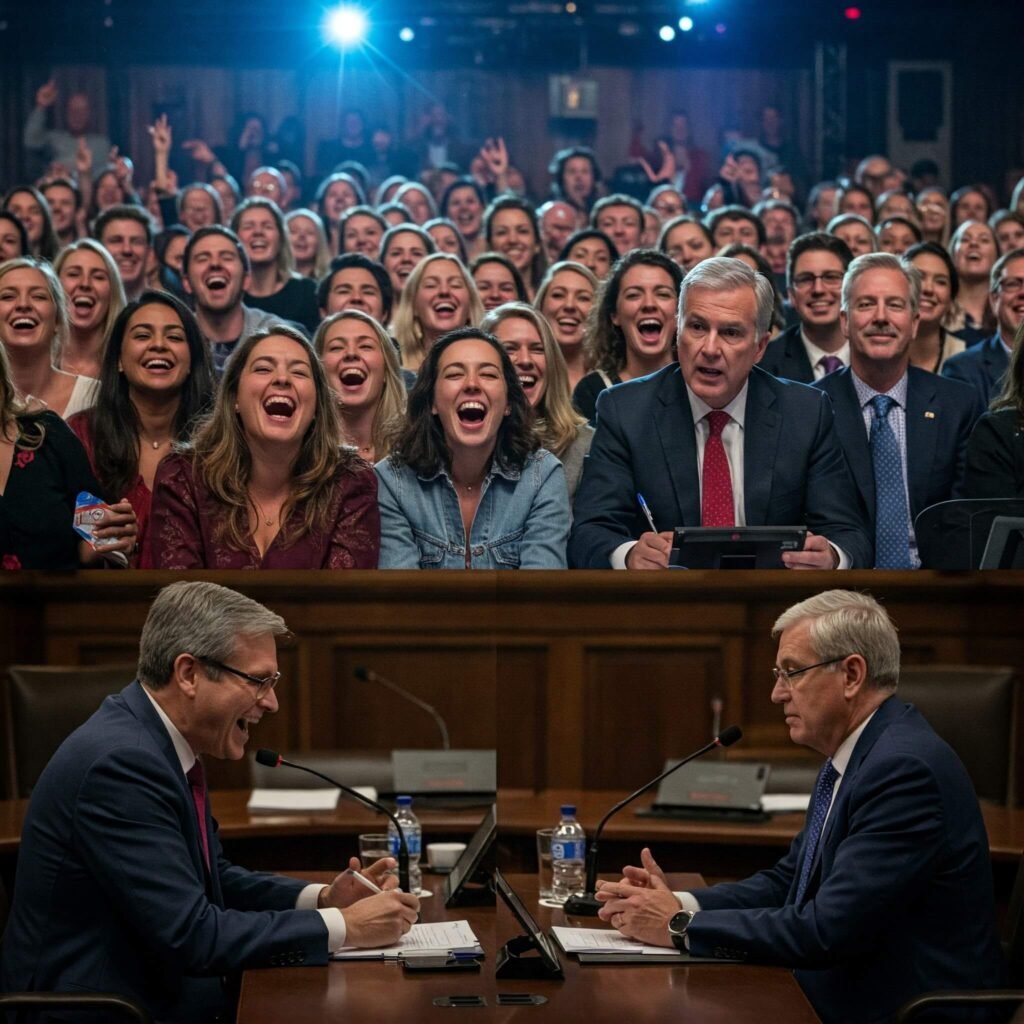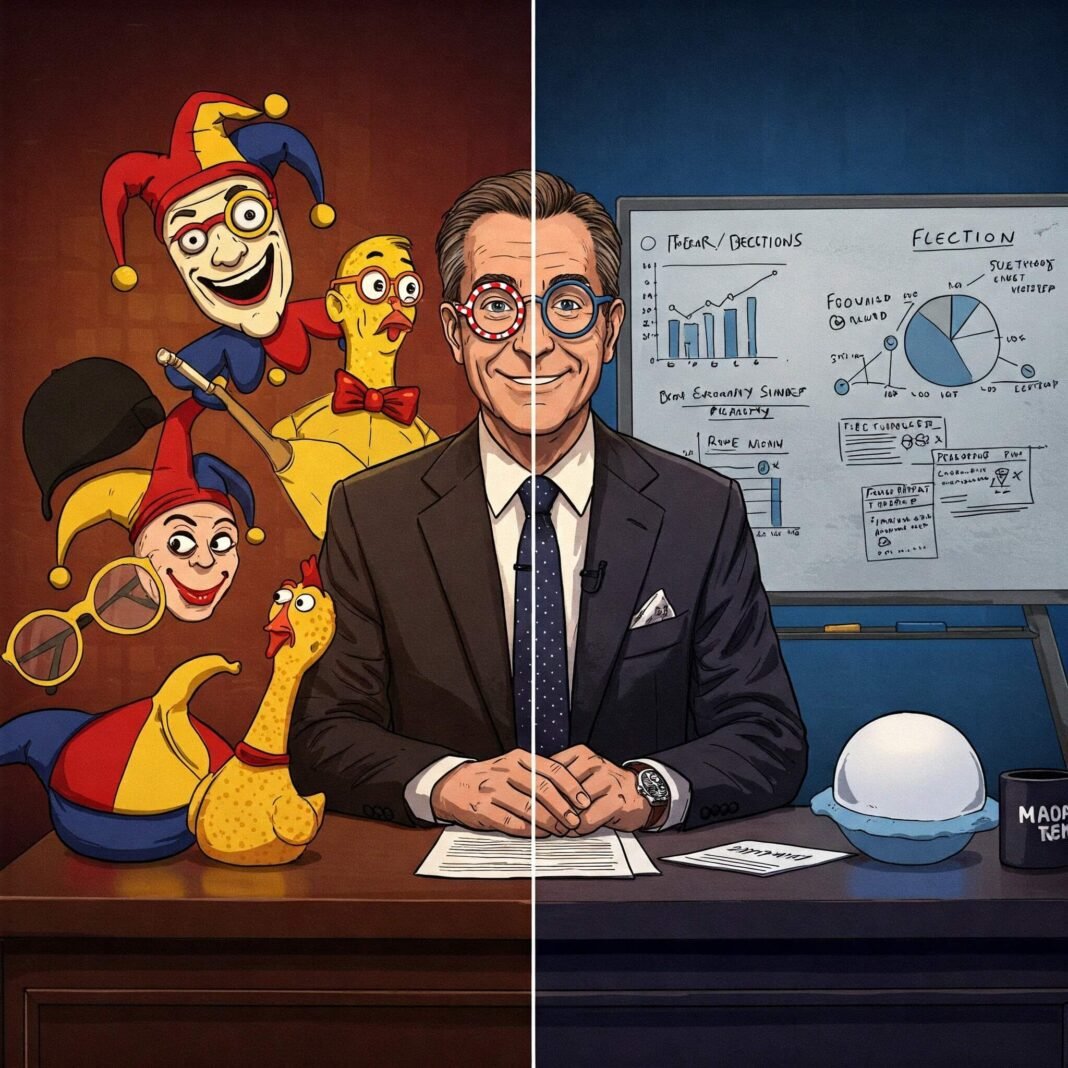Late-night comedy, from The Daily Show to Last Week Tonight, is more than just laughs—it’s a platform for political commentary that shapes how millions view the world. These shows mix sharp humor with incisive takes on policy and power, blurring the line between entertainment and analysis. This article dives into the role of late-night comedy, offering real-world examples, data-driven insights, and actionable takeaways to help you understand its influence.

The Rise of Late-Night Comedy as Commentary
From Carson to Colbert
Late-night comedy has evolved from light entertainment to a stage for political critique. Hosts like Stephen Colbert and Jon Stewart have turned late-night comedy into a powerful tool for dissecting issues, influencing public discourse.
- Why it matters: A 2023 Pew Research study found 60% of young adults get political news from late-night comedy shows.
- Real-world example: Stewart’s The Daily Show rallied viewers around healthcare reform in the 2000s.
Outbound Link: Pew Research Center: Media & News
How Late-Night Comedy Fuels Political Commentary
Satire That Sparks Debate
Satire is the core of late-night comedy’s political edge. Hosts like John Oliver use humor to break down complex issues, making late-night comedy a go-to source for accessible political commentary.
- Data point: A 2024 YouGov poll showed 55% of viewers trust late-night hosts over cable news for political insights.
- Actionable takeaway: Watch Last Week Tonight to unpack topics like climate policy with a comedic twist.
Outbound Link: YouGov America – Polls

The Influence of Late-Night Comedy on Viewers
Shaping Opinions with Humor
Late-night comedy doesn’t just entertain—it sways how audiences think about politics. By framing issues humorously, these shows can inspire action and shift perspectives.
- Example: John Oliver’s 2019 net neutrality segment drove thousands of FCC comments, per NPR.
- Tip for engagement: Follow late-night hosts on X to join conversations sparked by their commentary.
Challenges of Late-Night Comedy as Commentary
Navigating Bias and Balance
While late-night comedy delivers sharp commentary, it faces criticism for bias and oversimplification. Some argue these shows lean left, risking polarized audiences.
- Case study: A 2024 CNN report found 40% of viewers felt late-night comedy skewed too liberal, alienating some.
- Takeaway: Balance late-night comedy with primary sources like nonpartisan news or government reports.

Late-Night Comedy: Key Takeaways
Late-night comedy is a unique blend of humor and insight:
- Evolved into a platform for political critique.
- Uses satire to make issues relatable.
- Influences opinions, shaping public views.
- Faces challenges like bias and oversimplification.





